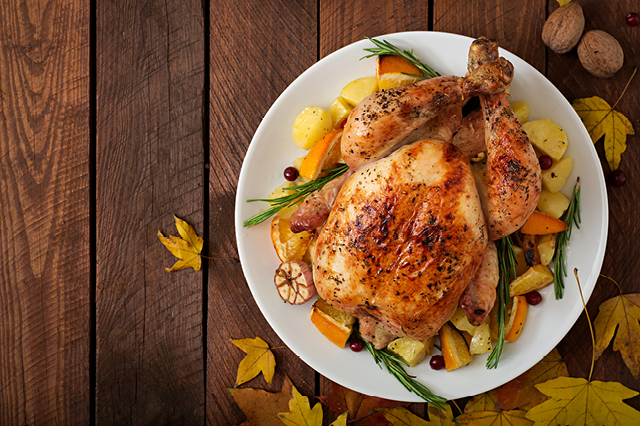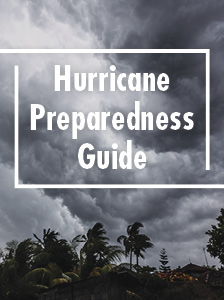Thanksgiving may be a day to show gratitude and eat great food, but it could also be pretty hectic and stressful, especially if you’re hosting. As you are cooking and preparing for guests, keep these Thanksgiving safety tips in mind.
Don’t Wing It
It’s easy to get distracted on such a busy day, but the kitchen is the last place you need your attention to wander. Home cooking fires are most likely to happen on Thanksgiving, according to the National Fire Protection Association.
To prevent kitchen accidents, don’t wear loose clothing, roll up your sleeves and keep an eye on cooking food. You also want to make sure your smoke alarms are working properly in advance, keep a fire extinguisher handy and know how to use it, and always keep an eye on children and pets.
Keep floors (and outdoor steps if it’s icy) from getting too slippery. Your homeowners policy should protect you if someone slips and falls in your home or on your property, but if you entertain often you may want to consider an umbrella policy. An umbrella policy can provide excess liability protection above your standard homeowners policy.
Bird Is the Word
Dreaming of making that perfect dinner your guests will talk about for years to come? Giving your guests food poisoning will keep them talking, but not in the way you’d like. That turkey in your freezer may be crawling with bacteria, so it’s important to take extra precautions when preparing it. The USDA recommends thawing a frozen turkey in the refrigerator for one to two days. Always read labels for expiration dates and cooking and thawing instructions.
Wash any plates or utensils the turkey touches before using them again, and never wash the turkey itself. That just spreads bacteria onto other surfaces. The only way to kill the germs is to fully cook your turkey. The USDA recommends cooking the turkey to an internal temperature of 165 degrees and using a kitchen thermometer to ensure thorough cooking.
Practice Safe Frying
Deep frying turkey has become a popular Thanksgiving cooking method, but when done improperly it is also one of the most dangerous. The National Fire Protection Association demonstrates how easily turkey frying can go wrong in the above video.
If you do decide to fry your turkey, take every precaution to do so safely. The U.S. Department of Agriculture recommends purchasing a turkey no larger than 12 pounds, since smaller turkeys fry up best. Set up the fryer outdoors, more than 10 feet away from your home on flat ground. Make sure the turkey is completely thawed and dry, or excess water will cause hot oil to spill over. Keep a fire extinguisher nearby, and don’t forget to watch children and pets closely while the turkey is frying.
Celebrate Responsibly
If you’ll be serving alcohol at your feast, it’s important that your guests drink responsibly. Establish designated drivers before the party starts and don’t be afraid to cut off access to alcohol.
Lock It Up
If you’re traveling to see family this Thanksgiving, make sure to keep your home safe from break-ins. Lock all doors and windows, and turn your security system on if you have one. Keep your valuables in a secure place. Never leave keys under a doormat; leave them with a nearby family member or trusted neighbor instead.
Let AAA help protect your home with a homeowners insurance policy customized just for you.

















